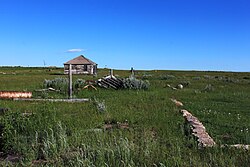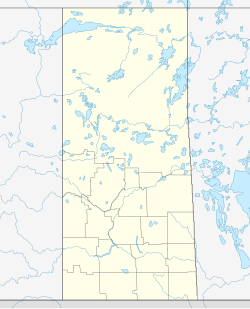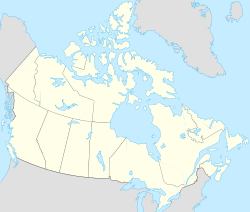Vidora, Saskatchewan
| Vidora | |
|---|---|
| Unincorporated community | |

Main Street Vidora 2010
|
|
| Motto: "The Place to Be" (1910s) | |
| Location of Vidora in Saskatchewan | |
| Coordinates: 49°20′00″N 109°25′03″W / 49.3333°N 109.4175°W | |
| Country | Canada |
| Province | Saskatchewan |
| Region | Southwest Saskatchewan |
| Census division | 4 |
| Rural Municipality | Reno |
| Established | 1910 |
| Incorporated (Village) | 1917 |
| Restructured (Unincorporated community) | January 1, 1952 |
| Government | |
| • Reeve | Brian McMillan |
| • Administrator | Lacelle Kim |
| • Governing body | Reno No. 51 |
| • MP | David L. Anderson |
| • MLA | Wayne Elhard |
| Population (1920) | |
| • Total | 200 |
| Postal code | S0N 2W0 |
| Area code(s) | 306 |
| Highways | Highway 13 |
Vidora is an unincorporated community in Reno Rural Municipality No. 51, Saskatchewan, Canada. The community once had a population of 200 people. It previously held the status of a village until January 1, 1952. The community is located between Robsart and Consul on highway 21 & highway 13 known as the Red Coat Trail. Very little remains of the former village, only one home that is also used as a post office still stands as of 2008. There are many cement foundations and sidewalks still found scattered around the town site, including the remnants of the old bank vault to the former Municipality Office.
In 1910 construction of the Canadian Pacific Railway line came through Vidora. Many of the CPR's engineers and surveyors were housed at a local farm house during construction of the rail line. Living at the same house where two girls named "Vi" and "Dora", the engineers and surveyors decided to use the two names to name the land because of their great hospitality, thus giving the town its name "Vidora". After the land was named, settlers as well as bootleggers began to settle the area starting the community of Vidora. By 1917, the community was incorporated as a village, and now had its very own town Council, and mayor. After becoming a village, Vidora began to grow quite fast and prosperous. By 1920, the village business districts consist of more than twenty businesses, including businesses such as a post office, cafe, pool hall, main hall, banks, lumber yards, general stores, a hotel and a spectacular row of 5 grain elevators. Vidora even had its very own electrical power plant, powering the whole town.
Prior to January 1, 1952, Vidora was incorporated as a village, and was restructured as an unincorporated community under the jurisdiction of the Rural municipality of Reno on that date.
...
Wikipedia


